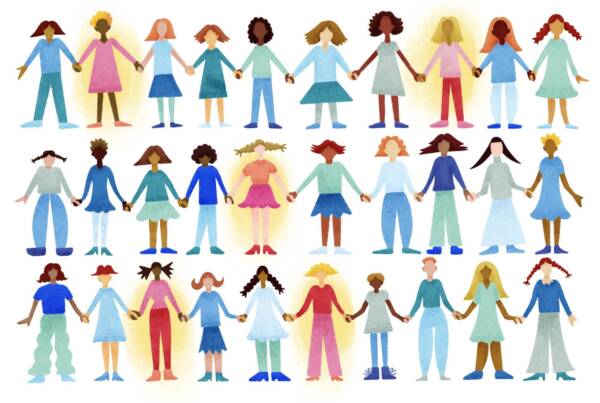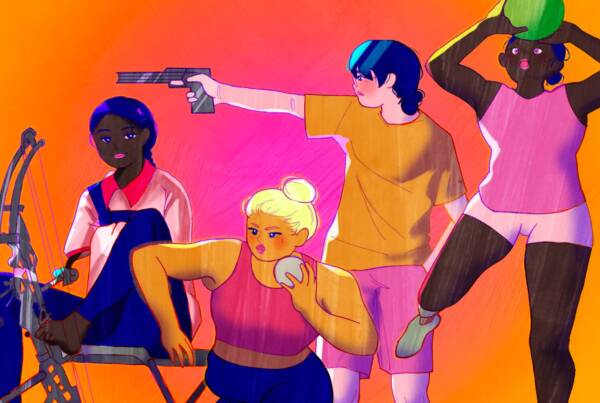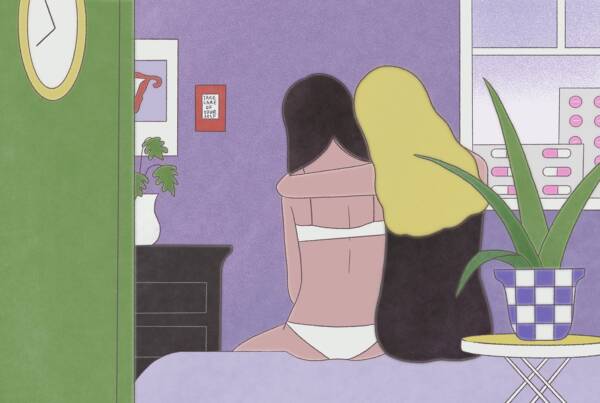Writing by Anonymous // Photograph by Galkin Alexey // What have I learned from this experience, other than of course, always practice safe sex, is quite simply not to judge. Abortion is far from a black and white issue.
Writing by Anonymous // Photograph by Galkin Alexey
I watched in horror as the thin red line appeared, almost instantly, and changed my life forever. I checked it, repeatedly. Were my eyes deceiving me? Did I follow the instructions properly? Was I dreaming?! Check, check, check again. Slowly, the realisation dawned on me—I was pregnant. The explosive feelings that hit me are almost too hard to articulate: disbelief, panic, disappointment. How did I let this happen? I was intelligent, I was responsible, I was sensible! Well, it was the usual story, really—without warning I fell for a guy, hard. The intensity of my feelings awoke a spontaneity in me that I never knew existed, and the first time we slept together we were so caught up in the moment that we didn’t give contraception the slightest thought.
I have never been anti-choice but despite my inherently progressive upbringing, I didn’t think I personally would ever be capable of having an abortion. I told myself that it was a life, one which wasn’t mine to end, and so if it ever happened to me I would give the baby up for adoption to a loving family. That would be the right thing to do. My younger self was full of idealistic yet unrealistic notions. My naive brain and heart hadn’t conceived of the complex issues that would accompany such a decision. But in the cold, harsh reality, I made an altogether different decision: I decided to terminate my pregnancy. I saw no choice. I was heavily in debt, had no family members to support me, and was without a partner to help me figure it all out. I was alone. I couldn’t give this life the start it deserved. And I wouldn’t be able to pursue the career I wanted or fulfil my travelling aspirations. It would change my life, irrevocably, and I just wasn’t ready for that.
As for the XY chromosome supplier, I was torn about whether to tell him or not. I cared for him, but we’d only been seeing each other for a matter of weeks and I didn’t want to add negativity into his life. In the end I decided to tell him. After all it was his too: he deserved to know, and I deserved not to carry the burden alone. His initial reaction was loving and supportive. He agreed with the decision and vowed to be there every step of the way. However, I was worried about the detrimental impact it would have on his life, and I was terrified that our relationship, still in its fragile honeymoon phase, wouldn’t survive it. I so badly wanted him to be there, but I couldn’t bear the thought of it being out of sheer obligation, so I told him I thought it best he wasn’t involved. I could feel the relief pour over him and as the weeks crawled on, his interest waned. I knew I was in it alone.
My initial appointment was at an NHS family planning centre, and was far more traumatic than I had anticipated. I was told in order to qualify for an abortion the nurse had to list a “valid” reason. My honest reply was that I wasn’t ready, but she wasn’t convinced and pressed me for alternatives. Finding out the father wasn’t going to be around seemed to satisfy her. I was asked to sign a document acknowledging that the NHS would dispose of the “remains” sensitively. I was then given an ultrasound where I saw the foetus on screen for the first and only time. I was told there was a heartbeat. A heartbeat! This moment will be etched in my mind forever. I had to remind myself that there was no scientific definition as to when human life begins. It is a matter of philosophical or religious opinion. Human life is a continuum—sperm and eggs are technically alive and almost always remain unfertilised so what makes this any different? I committed to a medical abortion but I would have to wait nearly two weeks, which meant I would be pregnant over Christmas and Hogmanay. I left feeling devastated.
The holidays were a disaster. I suffered from debilitating morning sickness that left me wanting to do nothing but lie in a darkened room. My parents and friends were completely baffled as to why their fun-loving pal and daughter was acting like a virtual recluse. But finally, after what felt like forever, the day arrived. I went to the hospital for my first visit and took the Mifepristone tablet that would begin softening my womb. I then had to return in two days time for the abortion itself. When I arrived I was taken to a private room and given a medley of drugs: a painkiller; an anti-sickness tablet; two antibiotic tablets to prevent infection; a second set of tablets; and a further four antibiotic tablets to take home. After eleven hours of constant sickness and mind-numbing cramps, I was still pregnant. Eventually the nurse had to intervene. I was given a smear to encourage the process and finally the pregnancy passed. I was mentally, physically, and emotionally exhausted but it was done. The weeks following my abortion passed in a blur of loneliness and emptiness. I was completely overcome with conflicting feelings of relief and sadness.
What have I learned from this experience, other than of course, always practice safe sex, is quite simply not to judge. Abortion is far from a black and white issue. It can happen to anyone for myriad of reasons: ineffective contraception; lack of sexual education; or a range of health reasons. I also have friends who see their abortions as routine procedures and have no lingering afterthoughts. That’s ok. For me and I’m sure many others, I’m plagued with guilt. That’s ok too. It’s ok to feel however you feel after an abortion, be it relief or a plethora of other conflicting emotions. What’s important is that women support each other by talking openly about this taboo issue, especially in these increasingly oppressive times. I fear the rhetoric surrounding abortion under Trump’s rule will force the issue into a dangerous place. The condemnation of abortion under any circumstance pushes grief and depression into the foreground, making women hide their tragedies, leaving them feeling alone and unsupported. Only as a collective whole can we stand up and fight back.







